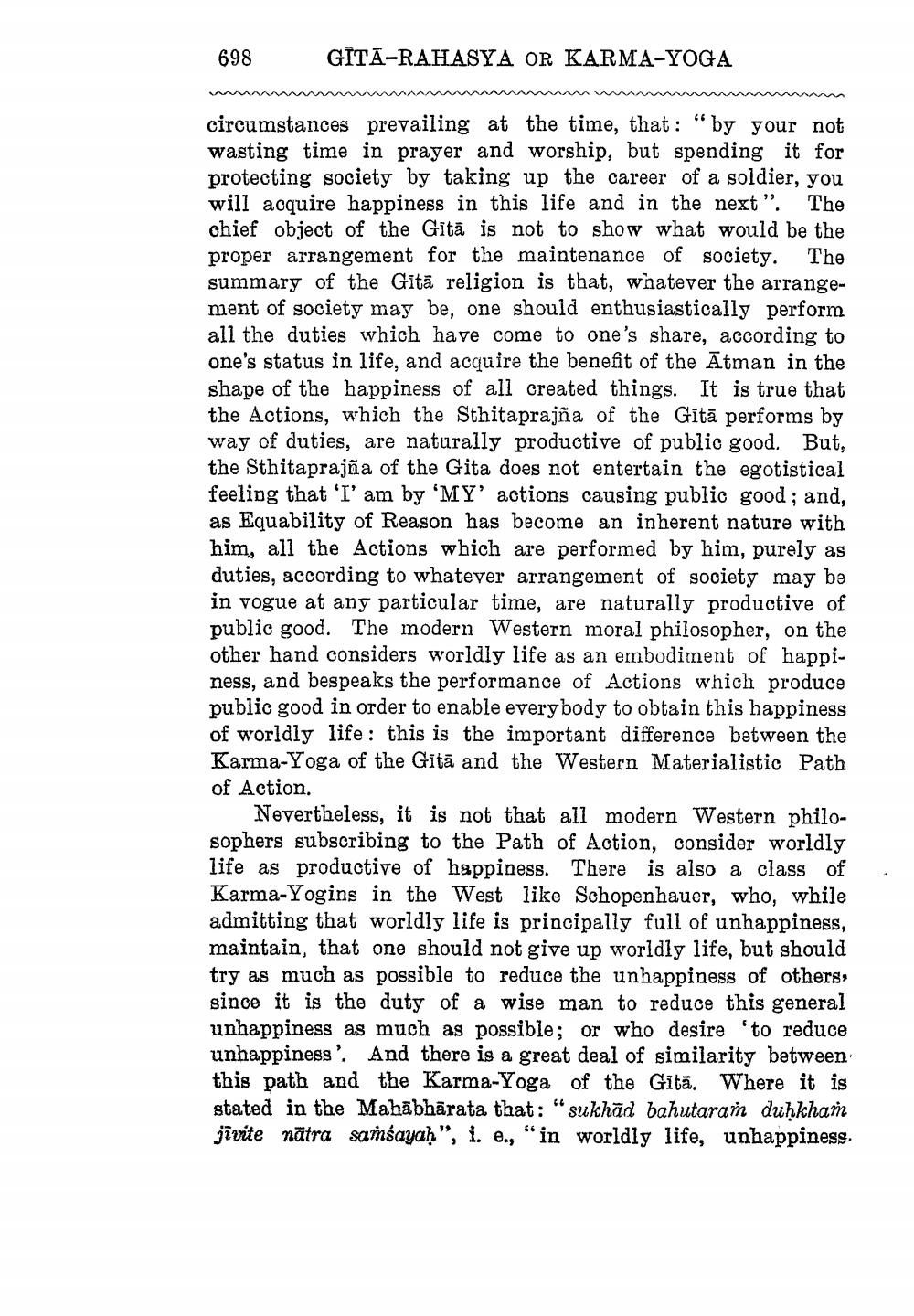________________
698
GITĀ-RAHASYA OR KARMA-YOGA
circumstances prevailing at the time, that: “by your not wasting time in prayer and worship, but spending it for protecting society by taking up the career of a soldier, you will acquire happiness in this life and in the next". The chief object of the Gītā is not to show what would be the proper arrangement for the maintenance of society. The summary of the Gitā religion is that, whatever the arrangement of society may be, one should enthusiastically perform all the duties which have come to one's share, according to one's status in life, and acquire the benefit of the Ātman in the shape of the happiness of all created things. It is true that the Actions, which the Sthitaprajña of the Gītā performs by way of duties, are naturally productive of public good. But, the Sthitaprajña of the Gita does not entertain the egotistical feeling that 'I' am by 'MY' actions causing public good; and, as Equability of Reason has become an inherent nature with him, all the Actions which are performed by him, purely as duties, according to whatever arrangement of society may be in vogue at any particular time, are naturally productive of public good. The modern Western moral philosopher, on the other hand considers worldly life as an embodiment of happiness, and bespeaks the performance of Actions which produce public good in order to enable everybody to obtain this happiness of worldly life: this is the important difference between the Karma-Yoga of the Gītā and the Western Materialistic Path of Action.
Nevertheless, it is not that all modern Western philosophers subscribing to the Path of Action, consider worldly life as productive of happiness. There is also a class of Karma-Yogins in the West like Schopenhauer, who, while admitting that worldly life is principally full of unhappiness, maintain, that one should not give up worldly life, but should try as much as possible to reduce the unhappiness of others, since it is the duty of a wise man to reduce this general unhappiness as much as possible; or who desire to reduce unhappiness'. And there is a great deal of similarity between this path and the Karma-Yoga of the Gitā. Where it is stated in the Mahābhārata that: “sukhad bahutaraṁ duḥkha javite nātra samsayaḥ", i. e., “in worldly life, unhappiness,




